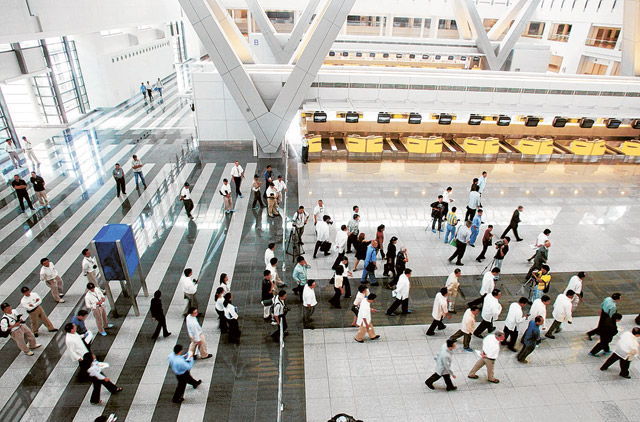Manila: A plan by the Manila international airport to implement the controversial integrated passenger service charge (IPSC) was temporarily put off after a court accepted a request by Filipino migrant workers.
Ferdie Maglalang, spokesman for the #Noto550 Coalition told Gulf News that the decision by Pasay City Regional Trial Court Branch 109 Presiding Judge Tingaraan Guiling to issue a Temporary Restraining Order (TRO) against a plan by the Department of Transportation and Communications and Manila International Airport Authority (MIAA) to implement the IPSC was already a victory of sorts for Filipino migrant workers.
“It was a victory, although temporary,” Maglalang said, adding that the TRO effectively restrains the MIAA from implementing the IPSC on overseas Filipino workers (OFW) leaving from international airports such as the NAIA terminals 1, 2 and 3.
A total victory would be the outright scrapping of the IPSC for OFWs he said.
In a memorandum issued on Friday, the MIAA gave notice that the implementation of the IPSC was held in abeyance.
Deferred
In a notice to airlines, MIAA General Manager Jose Angel Honrado said the “November 1 effectivity date for the implementation of the IPSC is hereby deferred until further notice.”
The IPSC was supposed to implement a P550 (Dh45) payment fee for all international passengers using the MIAA from November 1.
The fee would be integrated into airline tickets purchased by OFWs or their principals, but groups like the #Noto550 Coalition emphasise that based on a 19-year-old law, OFWs are exempt from paying travel taxes, documentary stamps and airport terminal fees.
While the MIAA said that the fee taken from OFWs would be reimbursed, groups opposing the IPSC said it was illogical that they had to pay in advance for the fee only to go through the tedious process of falling in line at the airport to get it back.
Earlier, Senator Aquilino “Koko” Pimentel said he would ask Senate to conduct an inquiry into the controversial IPSC while describing the inclusion of OFWs in the IPSC as “illegal.”
“This new scheme should be scrapped because it is illogical, legally questionable, and extremely unfair to our OFWs,” Pimentel said.
The implementation of the IPSC is being opposed by OFWs working in various parts of the world.
In his position paper coursed through the Ople Centre, Junie Fernandez, a community leader in Afghanistan, said OFWs in Afghanistan join Filipino workers in other parts of the world in objecting to the integration of terminal fees in international air tickets.
He questioned the logic behind MIAA’s scheme to make OFWs pay the P550 terminal fee only to give them a refund upon arrival. “We believe that this new policy is anti-OFW. If they are saying that we can refund the terminal fee later, then why include it in the airfare in the first place?”
Susan Ople of the Blas F. Ople Policy Centre, one of the organisations belonging to the #Noto550 Coalition, said the OFW sector is very grateful to Judge Tingaraan for his “timely decision,” on issuing the TRO.
“The decision released this morning [Friday] is in response to a petition for certiorari with request for temporary restraining order filed by 21 individual petitioners representing 14 OFW groups and non-government organizations last Wednesday,” she said.
“This is not about numbers. This is about a benefit provided by law to our OFWs for the past 19 years — they are exempt from paying the airport terminal fees. Obtaining refunds will not only be extremely difficult for our OFWs but also a clear violation of their rights under existing laws,” the Ople Centre stressed.













